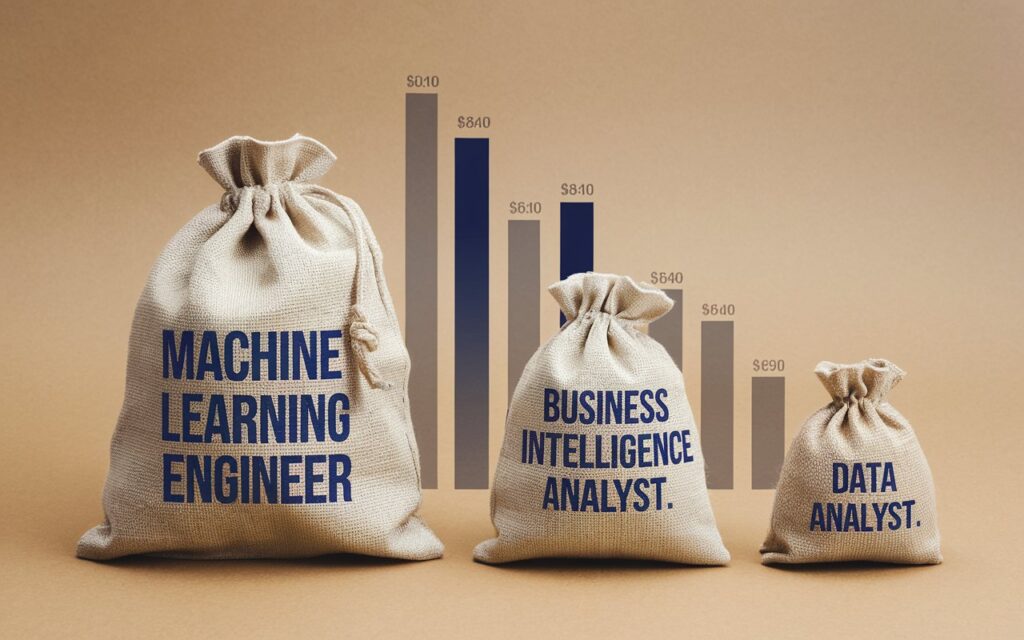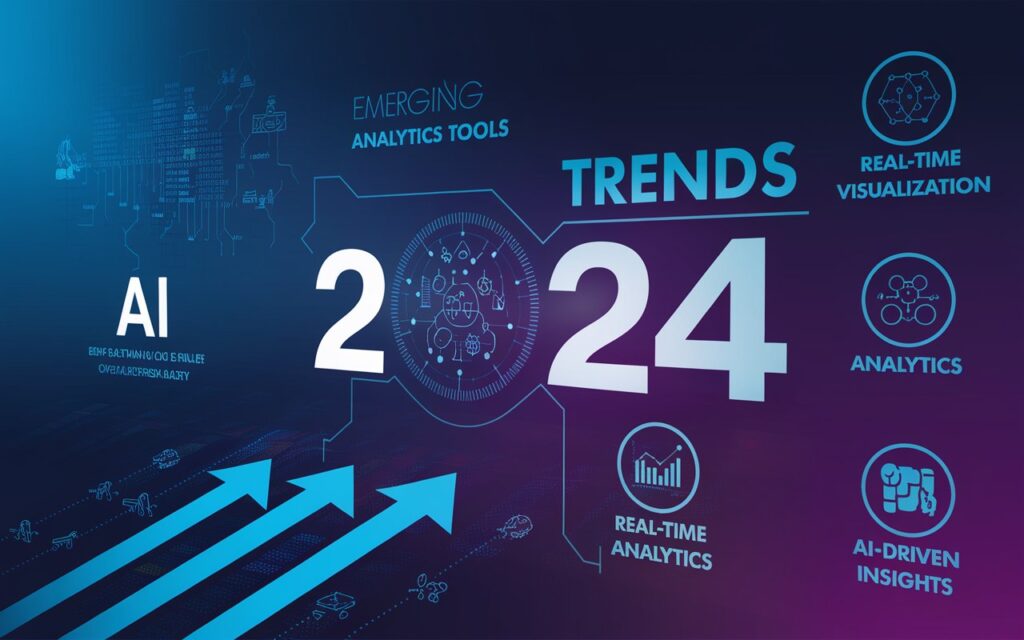Analytical Careers have never been more in demand, especially as data-driven insights and strategic problem-solving become essential across industries. In 2024, companies are increasingly seeking analytical minds to tackle complex challenges, optimize systems, and drive growth. Whether your interest lies in data science, finance, tech, healthcare, or even scientific research, analytical careers offer diverse pathways and rewarding potential for those with a knack for critical thinking and a passion for data. This guide breaks down the top jobs for analytical minds and provides insights on emerging trends, salary expectations, and the skills you need to succeed.
the estimated reading time is around 12–15 minutes.
Table of Contents

Analytical Careers Overview: The Modern Landscape
Current Market Trends
Analytical careers are thriving, driven by an increasingly data-focused world. Businesses across various sectors—from finance to healthcare and tech—are using data to drive decision-making and gain a competitive edge. According to recent industry insights, the demand for analytical professionals is expected to grow steadily over the next decade, with the rise of big data, AI, and machine learning all playing significant roles. The ability to extract and interpret data is becoming essential, and analytical roles are evolving to meet this need.
Required Skill Sets
A career in analytics generally requires a unique blend of technical and soft skills. On the technical side, proficiency in data analysis tools such as SQL, Python, and R, as well as knowledge of data visualization software like Tableau or Power BI, is often expected. Analytical thinkers must also have a strong foundation in statistics and, in some roles, machine learning. Soft skills are equally important; problem-solving, critical thinking, and communication skills are essential for translating data insights into actionable strategies that non-technical stakeholders can understand.
Growth Projections
The future for analytical careers looks promising, with high growth projections across numerous industries. For example, data science jobs alone are expected to grow by 22% over the next decade, according to the U.S. Bureau of Labor Statistics. Fields like healthcare and finance are anticipated to offer significant opportunities as they rely increasingly on data-driven approaches for both operational and strategic improvements. With an expanding demand for problem-solving careers, professionals equipped with analytical skills will be well-positioned for long-term career growth and advancement.

Top-Paying Analytical Careers in Data Science
Data Analyst Roles
Data analysts are responsible for gathering, processing, and analyzing data to help organizations make informed decisions. These roles are highly valued across industries like finance, healthcare, and retail, where the ability to turn raw data into actionable insights is essential. Data analysts typically use tools like Excel, SQL, and data visualization platforms to identify trends, forecast outcomes, and communicate findings. With a growing need for data-driven decision-making, data analyst roles offer competitive salaries, often reaching into six figures with experience and specialization.
Business Intelligence (BI)
Business Intelligence (BI) professionals play a key role in helping companies optimize their operations. They collect and analyze data from various sources, generating reports that guide business strategies and enhance productivity. BI experts frequently work with platforms like Tableau, Power BI, and Looker, creating dashboards and visualizations that make complex data accessible to decision-makers. BI careers are well-compensated, especially as companies prioritize data-driven insights to stay competitive. Senior roles in business intelligence can reach lucrative salary levels, with additional benefits in fast-growing industries like tech and finance.
Machine Learning Paths
Machine learning (ML) is a specialized and highly technical field within data science that focuses on developing algorithms that enable computers to learn from and make decisions based on data. Roles in machine learning, such as ML engineers and data scientists, are among the highest-paying analytical careers, as these professionals design predictive models, build AI tools, and work on automation projects. Proficiency in programming languages like Python, R, and TensorFlow is often required, and professionals in this field are rewarded with top-tier salaries, reflecting the advanced skills and expertise required. With the continued evolution of AI, ML roles are expected to grow rapidly, making them a promising path for analytical-minded professionals.
Financial Sector Analytical Careers Guide
Investment Analysis
Investment analysts play a critical role in helping firms and individuals make informed investment decisions. They assess financial data, market trends, and economic conditions to evaluate potential investments and predict returns. Investment analysts typically work for financial institutions, asset management firms, and investment banks. With expertise in financial modeling, economic forecasting, and valuation methods, these professionals provide insights that guide portfolio strategies and asset allocation. Due to the complexity and high stakes of their work, investment analysts enjoy competitive compensation, especially as they progress into senior or specialized roles.
Risk Assessment
Risk assessment professionals analyze financial risks associated with investment, lending, or other financial transactions. These roles involve evaluating market, credit, and operational risks, helping companies implement strategies to mitigate potential losses. Risk assessors use quantitative models, historical data, and industry insights to evaluate risk factors, ensuring that firms are prepared for market fluctuations or adverse economic changes. As demand for robust risk management increases, especially in highly regulated industries like finance and insurance, skilled risk assessment professionals are rewarded with high salaries and significant job stability.
Quantitative Analysis
Quantitative analysts, often called “quants,” are specialized professionals who use mathematical and statistical models to analyze financial data and develop investment strategies. They create algorithms and predictive models that guide trading decisions, often working within hedge funds, investment banks, and financial technology firms. Expertise in programming (such as Python or C++), deep mathematical knowledge, and familiarity with advanced data analysis techniques are essential for success in this role. Quant roles are known for being some of the most challenging yet lucrative paths within finance, as they require exceptional analytical skills and technical proficiency.
Tech Industry Analytical Careers Breakdown
Software Analysis
Software analysts play a vital role in identifying business requirements and translating them into technical solutions. They assess existing software systems to improve functionality, efficiency, and user experience, often collaborating with developers, designers, and stakeholders. Software analysts focus on identifying bottlenecks, ensuring code quality, and optimizing system performance. Their work requires proficiency in programming languages, analytical thinking, and problem-solving, as well as a strong understanding of software development processes. This role is in high demand as businesses continue to seek technology solutions that streamline operations and improve customer interactions.
Systems Architecture
Systems architects design and structure computer systems to meet organizational goals, balancing functionality, scalability, and efficiency. They create blueprints for IT systems, ensuring that the infrastructure supports business processes and can scale as the company grows. Systems architects analyze the needs of the organization, selecting the appropriate hardware and software solutions and implementing a cohesive architecture that enables robust performance. Their expertise in network design, data flow, and security is essential to maintaining reliable, efficient IT systems. Given the critical nature of their work, systems architects are highly compensated and are essential in tech-driven companies.
Quality Assurance
Quality assurance (QA) professionals are responsible for ensuring that software products meet high standards before they reach the end user. They develop and execute test plans, identify bugs, and work closely with developers to resolve issues. QA roles require a strong eye for detail, familiarity with software testing methodologies, and the ability to think critically about user experience. With the tech industry’s growing emphasis on product quality and customer satisfaction, QA professionals are essential for minimizing product flaws and enhancing reliability. Many QA experts specialize in automation, using scripting and testing tools to streamline the testing process, which is a valuable skill as the demand for faster, more reliable software releases continues.

Healthcare Analytical Careers: Emerging Opportunities
Clinical Data Analysis
Clinical data analysts play a critical role in the healthcare industry, analyzing patient data to support clinical decision-making, improve patient outcomes, and enhance operational efficiency. They work with datasets that include patient demographics, treatment protocols, and health outcomes, using statistical tools to identify patterns and trends. Clinical data analysts are essential in evidence-based medicine, where data-driven insights are used to optimize treatment plans and improve healthcare delivery. With a strong background in statistics, database management, and clinical knowledge, these professionals are in demand as healthcare providers increasingly prioritize data-driven solutions to improve patient care.
Healthcare Informatics
Healthcare informatics combines healthcare, information technology, and data science to optimize the management and use of health information. Professionals in this field manage electronic health records (EHRs), design data storage systems, and ensure the secure and effective use of health information technology (HIT). Healthcare informatics specialists play an essential role in ensuring seamless information flow across healthcare providers, which is vital for delivering quality patient care. Skills in data management, systems analysis, and an understanding of healthcare regulations are crucial for this role. As healthcare systems continue to digitize, the demand for informatics experts who can facilitate data integration and enhance information accessibility will only grow.
Medical Research
Medical research analysts focus on collecting, interpreting, and applying scientific data to advance medical knowledge, often working with clinical trials, genetic data, or epidemiological studies. These professionals contribute to the development of new treatments, the understanding of disease patterns, and the assessment of medical interventions. Medical research analysts collaborate with scientists, clinicians, and biostatisticians, using data analytics and advanced statistical techniques to derive meaningful conclusions from complex datasets. This field is well-suited to individuals passionate about research and discovery, offering the opportunity to make a direct impact on public health and medical advancements.

Analytical Careers in Business Strategy
Market Analysis
Market analysts assess market conditions to help businesses understand consumer behavior, competitive dynamics, and potential growth areas. By evaluating data from surveys, sales records, and industry reports, market analysts provide insights into product demand, pricing strategies, and promotional effectiveness. They play an essential role in shaping a company’s marketing, sales, and product development strategies. With skills in statistical analysis, consumer psychology, and trend spotting, market analysts are critical to organizations aiming to stay competitive and responsive to market changes.
Operations Research
Operations research analysts apply mathematical models and analytical techniques to optimize business operations. They focus on enhancing efficiency in areas such as logistics, supply chain management, and resource allocation, using methods like linear programming, simulation, and decision analysis. Operations research is crucial in industries where even small improvements can lead to significant cost savings and increased productivity. Professionals in this field need strong quantitative skills, a deep understanding of business processes, and the ability to translate complex models into actionable solutions for organizational decision-makers.
Management Consulting
Management consultants work with organizations to solve complex business problems, improve performance, and implement strategic initiatives. They leverage analytical methods to diagnose organizational issues, evaluate opportunities, and recommend changes that can drive growth and efficiency. Management consulting is a versatile field, allowing analysts to work across various industries, from finance to healthcare. This role demands high-level analytical thinking, strong communication skills, and adaptability, as consultants often work on diverse projects requiring unique solutions for each client.
Scientific Research Analytical Careers
Laboratory Analysis
Laboratory analysts play a vital role in scientific research, conducting experiments and tests to analyze materials, biological samples, and chemicals. Working in fields like pharmaceuticals, environmental science, and materials engineering, they apply a range of techniques such as chromatography, spectroscopy, and microscopy to gather precise data. This career path requires strong technical skills, attention to detail, and proficiency with lab equipment. Laboratory analysts contribute directly to scientific discoveries, quality control, and the development of new products and technologies.
Research Development
Research and development (R&D) specialists focus on innovating and improving products or processes across industries like biotechnology, engineering, and consumer goods. These professionals combine scientific inquiry with strategic goals, often collaborating with cross-functional teams to turn ideas into market-ready solutions. Their responsibilities range from conducting preliminary research and feasibility studies to prototyping and refining new products. Successful R&D specialists are skilled in project management, creativity, and technical expertise, making them essential in driving progress and maintaining competitive advantages for companies.
Experimental Design
Professionals specializing in experimental design are critical to advancing scientific knowledge and ensuring the accuracy and validity of research results. They create and refine methodologies for studies and experiments, determining how data will be collected, measured, and analyzed. Experimental designers work closely with scientists and researchers to minimize errors, optimize resource use, and ensure that findings can be replicated. This role requires a deep understanding of statistical methods, problem-solving skills, and the ability to create robust, reliable experimental frameworks, making it integral to any research-focused field.
Engineering Analytical Careers Path
Systems Engineering
Systems engineers are responsible for designing, integrating, and managing complex systems across industries such as aerospace, IT, and telecommunications. Their role involves understanding the intricate interconnections within a system to ensure it operates efficiently and reliably. Systems engineers combine analytical skills with technical expertise to identify requirements, optimize design, and oversee the entire lifecycle of a system, from concept to deployment. With a blend of project management and engineering knowledge, systems engineering is ideal for those who enjoy solving large-scale, complex challenges.
Process Analysis
Process analysts focus on improving efficiency within organizational workflows, making this career path essential for industries like manufacturing, logistics, and service management. By analyzing and refining processes, these professionals help businesses reduce costs, increase productivity, and improve product quality. Using methodologies such as Six Sigma, Lean, and continuous improvement strategies, process analysts identify bottlenecks and implement streamlined solutions. Strong analytical skills, an eye for detail, and familiarity with data analysis tools are critical in this field, making it a rewarding choice for analytical minds.
Industrial Engineering
Industrial engineers play a pivotal role in optimizing systems and processes to enhance productivity, reduce waste, and ensure quality control. They work across sectors like manufacturing, healthcare, and logistics, applying principles of engineering, mathematics, and management science. Industrial engineers focus on maximizing efficiency within a production environment, balancing resources, time, and energy to improve output and reduce costs. This career path requires problem-solving abilities, strong analytical skills, and a deep understanding of both technical and managerial principles, making it a great fit for those who excel at both analysis and innovation.
Choosing Your Analytical Career Path
Choosing the right path among various analytical careers can be challenging, but with the right approach and tools, you can align your strengths with the career best suited to you. Whether you’re drawn to problem-solving careers in data science, healthcare, engineering, or finance, understanding the nuances of each analytical job opportunity can help you make an informed decision. Here’s how you can begin your journey.
Self-Assessment Tools
One of the first steps in choosing the right analytical career path is understanding your strengths, skills, and interests. Self-assessment tools can provide invaluable insights into your analytical capabilities, problem-solving style, and work preferences. Tools such as the Myers-Briggs Type Indicator (MBTI), CliftonStrengths, and SkillScan can reveal the areas in which you excel and guide you toward the analytical careers that best suit your profile. If you’re someone with a strong inclination toward numbers, data, and systems, for example, analytical jobs in data science or engineering might be a great fit.
Industry Comparison
With so many analytical careers across diverse fields, comparing industries can help narrow down your options. Some industries, like tech and finance, offer high-paying roles for analytical minds, such as data analysis, investment analysis, and quantitative analysis, making them attractive for those looking to maximize earning potential. Alternatively, healthcare and scientific research offer analytical job opportunities that focus on emerging technologies, innovative research, and medical advancements, appealing to those passionate about science and healthcare impact. By comparing growth potential, industry demand, and the types of problem-solving careers within each sector, you can choose an analytical career aligned with your interests and goals.
Decision Framework
A structured decision framework can help clarify which analytical career path is best for you. This framework typically involves setting clear career goals, understanding the skills required for various roles, and evaluating the job prospects for each analytical career. Consider factors such as job stability, salary expectations, advancement opportunities, and work-life balance. Additionally, think about how each role aligns with your long-term aspirations. For instance, if you’re interested in innovation and leadership, analytical careers in business strategy, such as management consulting or operations research, could provide growth and progression opportunities.
In summary, finding the right analytical career path requires a blend of self-assessment, industry exploration, and structured decision-making. By carefully evaluating each factor, you can confidently select the career that suits your unique skills, values, and aspirations.

Future of Analytical Careers: 2024 Trends
As technology and data continue to shape industries worldwide, analytical careers are evolving rapidly to meet new demands. From emerging roles to changing salary expectations, understanding the trajectory of analytical job opportunities in 2024 can help you stay competitive and prepared for future advancements.
Emerging Roles
The analytical career landscape is expanding with roles that were previously non-existent or specialized within limited sectors. Fields such as Data Science and Artificial Intelligence (AI) are introducing roles like Data Ethics Analyst, Machine Learning Architect, and AI Operations Specialist. In the healthcare industry, the rise of personalized medicine and digital health is creating opportunities for Genomic Data Analysts and Healthcare Data Privacy Specialists.
Likewise, sustainability and environmental focus are giving rise to roles in Environmental Data Science and Climate Risk Analysis, catering to companies aiming for greener practices. Staying updated with emerging analytical careers will be essential for job seekers and professionals alike, as these roles offer the opportunity to work on cutting-edge projects that solve complex problems across industries.
Salary Expectations
As the demand for analytical skills intensifies, salaries in this field are expected to grow. According to industry reports, the median salary for data science roles is projected to rise due to high demand and specialized expertise. Data Scientists, Machine Learning Engineers, and Quantitative Analysts remain among the highest-paying roles, often seeing starting salaries in the $80,000 to $120,000 range, with seasoned professionals earning upwards of $150,000. Meanwhile, analytical roles in business strategy and finance, such as Management Consultants and Risk Analysts, continue to see competitive compensation packages, especially in sectors like tech, finance, and healthcare.
For professionals looking to maximize earnings, roles in AI and Machine Learning, Quantitative Analysis, and Healthcare Informatics offer lucrative opportunities in 2024. Additionally, freelance analytical professionals may experience more favorable hourly rates as businesses seek flexible, skilled talent to manage short-term projects or data-heavy initiatives.
Industry Evolution
As industries adapt to new technologies and global trends, analytical careers are adapting too. The rise of AI and machine learning has transformed industries like finance, healthcare, and engineering, creating a reliance on advanced data insights. Fields that traditionally had less focus on analytics, such as Public Policy, Education, and Nonprofit Work, are now integrating data analytics to inform decisions, leading to new roles in these areas.
With the increasing focus on data privacy and ethical AI, regulatory compliance and ethics analysis are becoming essential components of many analytical roles. Furthermore, remote work has expanded access to global analytical jobs, allowing companies to access talent from around the world and enabling professionals to explore freelance and remote positions across sectors.
Preparing for the Future of Analytical Careers
Professionals aiming to future-proof their analytical careers should focus on upskilling in machine learning, data privacy, and industry-specific tools. Staying current with certifications, emerging software, and continuous skill development will position you as a valuable asset in a rapidly advancing field. Analytical careers are poised for dynamic growth in 2024, and those who keep pace with industry evolution will have the advantage of securing some of the most sought-after roles.
Analytical careers continue to be vital across industries, and with thoughtful preparation, you can stay ahead and ensure your skillset remains relevant for years to come.
Conclusion
Choosing a path in analytical careers opens doors to a world of opportunities across diverse industries, from data science and healthcare to finance and engineering. Whether you’re drawn to high-impact roles in problem-solving careers like risk assessment or quantitative analysis, or intrigued by the potential of emerging jobs for analytical minds such as machine learning and environmental data science, analytical fields offer both stability and room for growth.
Throughout this guide, we’ve explored the essentials—from foundational skills and salary expectations to career paths and industry evolution—providing a roadmap for those looking to succeed in analytical roles. The demand for analytical talent continues to rise as businesses increasingly rely on data-driven insights, creating a promising future for those who are passionate about turning data into actionable solutions.
As you consider your career path in analysis, keep in mind the importance of continuous learning, adaptability, and industry awareness. Analytical careers are evolving fast, and those who stay ahead of the curve with updated skills and emerging tools will be best positioned to thrive. By aligning your strengths, interests, and long-term goals with one of these exciting paths, you’ll be well-prepared to make impactful contributions in whichever analytical role you choose.
References
Here are some references that could serve as credible sources for a blog on Analytical Careers and related fields. Each link provides valuable insights into various aspects of analytical roles, industry demands, and career outlooks.
- U.S. Bureau of Labor Statistics: “Occupational Outlook for Analysts”
https://www.bls.gov/ooh/ - Data Science Central: “Top Career Paths in Data Science”
https://www.datasciencecentral.com - Harvard Business Review: “The Evolving Role of Data Analysts in Organizations”
https://hbr.org/ - Coursera Blog: “Highest Paying Jobs in Analytics and Data Science”
https://www.coursera.org/articles - IBM Blog: “Skills Needed for Careers in Machine Learning and Data Science”
https://www.ibm.com/blog - Healthcare Analytics News: “Emerging Careers in Healthcare Analytics”
https://www.hcanews.com/ - Investopedia: “Quantitative Analyst Careers in Finance”
https://www.investopedia.com/ - The Balance Careers: “Overview of Quality Assurance Analyst Roles in Tech”
https://www.thebalancecareers.com
These sources cover a range of analytical fields, from data science and healthcare informatics to business strategy and quality assurance, providing a comprehensive view of the career opportunities and trends in analytical jobs.




